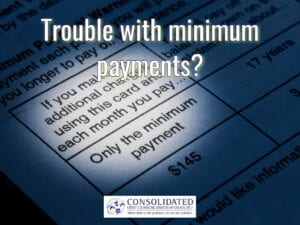How to keep the anxiety at bay and weigh your options.
In an uncertain economy, many of us are relying on our paycheques more than ever before. We are keeping a tight hold on things and the last thing we need is a wrench, like being laid off, thrown into our finances.
Layoffs can be scary and frustrating because you rarely see them coming. Unlike other work terminations, these have little to do with performance, tenure, or anything you say or do. These are unpredictable actions done by companies. Since many of us are not prepared for such a random occurrence they often leave us high and dry. When this happens it can be easy to fall into despair, but that doesn’t have to be the case.
Manage your anxiety
If you find yourself having been freshly laid off staying calm and taking stock of things can mean all the difference. There are a lot of options and keeping calm and not panicking is your best bet to keep things from going from bad to worse. Ideally, an emergency fund has been set aside for situations such as this. Even if you haven’t there still is no reason to lose hope. There is a lot that can be done.
Is your severance package fair?
You are entitled to two days’ wages for every year in the company with a minimum of five days. Most businesses require the employee to sign a waiver in order to receive it. You should carefully read the waiver and make sure the severance is fair before signing.
Assess how much money you have immediate access to
The first thing to do is to figure out where you stand. Make note of all the sources of money you have available to you and how much is available. Sources can be:
- Bank accounts
- Severance
- Employment Insurance
- Credit Cards
- Lines of credit
- Items you can sell
Whatever financial assets you have access to should be evaluated as soon as possible. Even though many of these sources, especially those that put you further into debt, should be considered a last resort, it’s good to get a clear picture of everything. Having a better idea of your finances will help you budget for the interruption in paychecks.
Review and update your budget
An important thing for general financial health is a good budget. However, the difference between a regular budget and a budget after a layoff is quite different. Sit down with your budget and separate the necessities like rent, groceries, car payments and any bills that cannot be interrupted.
What is left are the optional things in your budget. Things like extras, luxuries, and unnecessary expenses should be, for the good of your finances, temporarily put on hold or reduced.
Ease up your finances by aiming to make your monthly expenses the lowest that you can make it. No one can be expected to cut everything out but it is important to eliminate all that you can. The lower the budget, the longer you can last without a regular income or adding on more debt.
Pause any extra payments
We live in a society where everything costs a little bit. Data plans, streaming services, gaming memberships, everything costs a little bit. Individually these payments might not seem like much, but they add up and end up being a big hit to your finances.
When you are employed and have the money they aren’t necessarily an issue. When you are not sure when you will have more money coming in though, they make a great place to look for timing your budget.
Many of these services are automatic and unless you cancel or put them on hold, they will continue to bill you. It is easy to forget about these things. So it can lead to a bit of a shock when the money is taken from your account at a time when you don’t have any to spare.
That’s why it’s a good idea to go through all of your subscriptions and statements as early as possible. Make a list of when and how often these payments come out. Then you can make an informed decision on which ones to keep and which ones to let go of, at least for now.
Set money aside until you are back on your feet
You might not be able to anticipate how long it will take to get a new job. It pays to be extra cautious with your finances. To help cash flow while looking for your next job, pause your contributions to any of your savings accounts, like RRSP or TFSA. Don’t go spending the money just yet though. Instead, put your contributions into a regular savings account. That way, if there comes a time you need the money it’s available for you. If you don’t end up using it, you won’t lose out on your planned savings because you can simply transfer it to the account it was originally intended for.
What about your insurance?
A factor that a lot of people forget about is insurance and benefits that they might have had at their work. Things like drug plans, dental care, and other benefits are obviously going to change. Some companies offer you the chance to switch from a group plan to an individual plan seamlessly. Individual plans can come along with a high price tag. If your finances allow for it, it’s recommended that you go ahead with the switch. This is especially true for those with health issues. The cost of the plan may be easily offset by how much you save on health expenses.
Sign up for Employment Insurance or other programs
The Government of Canada has many systems and programs in effect to help people in situations like being laid off, for example, Employment Insurance. Look into your eligibility for these programs as soon as possible. Some of them have strict timelines as to how long after being laid off you have to apply for the benefits. These programs are in place to help. Make use of them, it’s what they’re there for.
Contact lenders to see if you can negotiate your terms
Some creditors will work with you to adjust your payments to ease cash flow while you’re laid off. This may look like pausing your payments, refinancing your loan, or another form of adjustment. Even lowering your monthly payment a little bit can help your finances.
It’s worth calling your creditors no matter if you want to make adjustments to your payments or not. This is a common situation. There might be options that you aren’t aware of that, once aware, you decide to go for. Also, by keeping them informed of your situation and showing you’re willing to work with them, you keep them in your good graces. That can make all the difference in how they approach your situation. It can even mean the difference between whether or not they contact the credit bureau and damage your credit.
Find part-time work
A paycheck is a paycheck when you really need it. Even if you can’t find a job in the same field or pay grade as the one you lost it might help to find something in the meantime. Consider the options around you that could help with an immediate opportunity. This won’t be forever, but it will help you stay afloat and wait out the time it might take to find a new job that you really want.
Just be aware of any rules around taking on work or earning money that may affect any government benefits you’re receiving.
Short-term lending options
While there are short-term lending options available they should only be used as an absolute last resort. So much of a last resort, that it’s best to think of them as not an option. These lending options are often the beginning of a debt spiral that can mean years of damage to your finances and credit.
Still make time for fun
Though this is a situation to take seriously. it is still important to think of your mental health. Even if you cannot splurge money, it is important to find ways to enjoy life. If you can fit a little bit of something to enjoy yourself into the budget it’s a good idea to do it.
Where to get help if things get really bad
If you have issues finding work and things get bad there are options. Research in your area about services that might be able to help. Things like shelters and food banks are in place for the worst-case scenario. Even if it doesn’t come to that it is a good idea to know what your options are.
It’s not the end of the world
In conclusion, the best thing you can do is manage your anxiety and keep a level head. It is easy to panic and picture the worst-case scenario. Knowing where you stand and what your options are can make all the difference. There is a lot that can be done and taking the time to do it is your best way to combat this unfortunate situation. Take a breath, make a plan, and you will be back on your feet in no time.
If you’re already in financial trouble because of being laid off we can help! One of our trained Credit Counsellors will assess your situation and go over a plan to get you out of debt.




